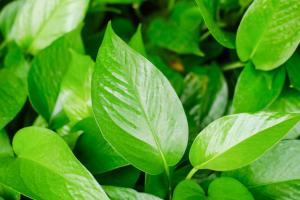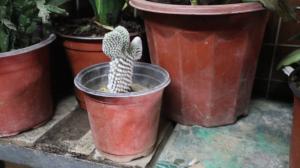What Plants Won't Grow Under Black Walnut Tree
Black walnut trees are known for their strong and attractive hardwood, but they also produce a chemical called juglone that is toxic to many plants. This compound is found in all parts of the tree, including the leaves, roots, and bark, as well as in the nuts that fall to the ground. When juglone is released into the soil, it can create a hostile environment for many plants, preventing them from growing or even causing them to wilt and die. So, what plants won't grow under a black walnut tree? Let's find out.
1. Tomatoes
If you're planning to grow tomatoes anywhere near a black walnut tree, you might want to reconsider. Tomatoes are notoriously sensitive to juglone poisoning and will quickly show signs of distress if exposed to it. Symptoms can include yellowing leaves, stunted growth, and reduced fruit production. While some tomato varieties may be more resistant than others, it's generally best to avoid planting them altogether near a black walnut tree.
2. Peppers
Like tomatoes, peppers are also quite susceptible to juglone toxicity. These plants may grow slowly and produce very little fruit when planted near a black walnut tree. Peppers can also show signs of yellowing foliage and wilting leaves when exposed to too much juglone in the soil. If you're set on growing peppers, try planting them in raised beds or containers that are filled with fresh soil and located away from the tree.
3. Potatoes
Potatoes are another type of plant that won't grow well under black walnut trees. They are particularly sensitive to juglone and can experience stunted growth, yellowing leaves, and small tubers when grown in contaminated soil. If you must plant potatoes near a black walnut tree, consider using a thick layer of mulch to help block the toxic chemicals from reaching the roots.
4. Rhododendrons
While some plants can tolerate small amounts of juglone in the soil, Rhododendrons are not one of them. These flowering shrubs will struggle to grow and may even die if planted near a black walnut tree. Rhododendrons prefer acidic soils with a pH between 4.5 and 5.5, which makes them particularly vulnerable to juglone's alkaline properties. If you want to add some color to your landscape, try planting Rhododendrons in containers or raised beds that are filled with fresh soil.
5. Roses
Roses are another type of plant that won't thrive under a black walnut tree. Like Rhododendrons, these flowering shrubs prefer slightly acidic soils and may be sensitive to juglone poisoning. Roses may experience stunted growth, yellowing leaves, and small blooms when planted near a black walnut tree. To ensure your roses are healthy and happy, consider planting them in a different area of your garden.
Conclusion
While black walnut trees can add value and beauty to your landscape, it's important to be aware of their aggressive chemical properties. By planting the right types of plants and taking extra precautions, you can create a thriving garden that coexists with the black walnut tree. Avoid planting sensitive plants like tomatoes, peppers, potatoes, rhododendrons, and roses near the tree to ensure the health and vitality of your garden.

 how many times do yo...
how many times do yo... how many planted tre...
how many planted tre... how many pine trees ...
how many pine trees ... how many pecan trees...
how many pecan trees... how many plants comp...
how many plants comp... how many plants can ...
how many plants can ... how many plants and ...
how many plants and ... how many pepper plan...
how many pepper plan...































